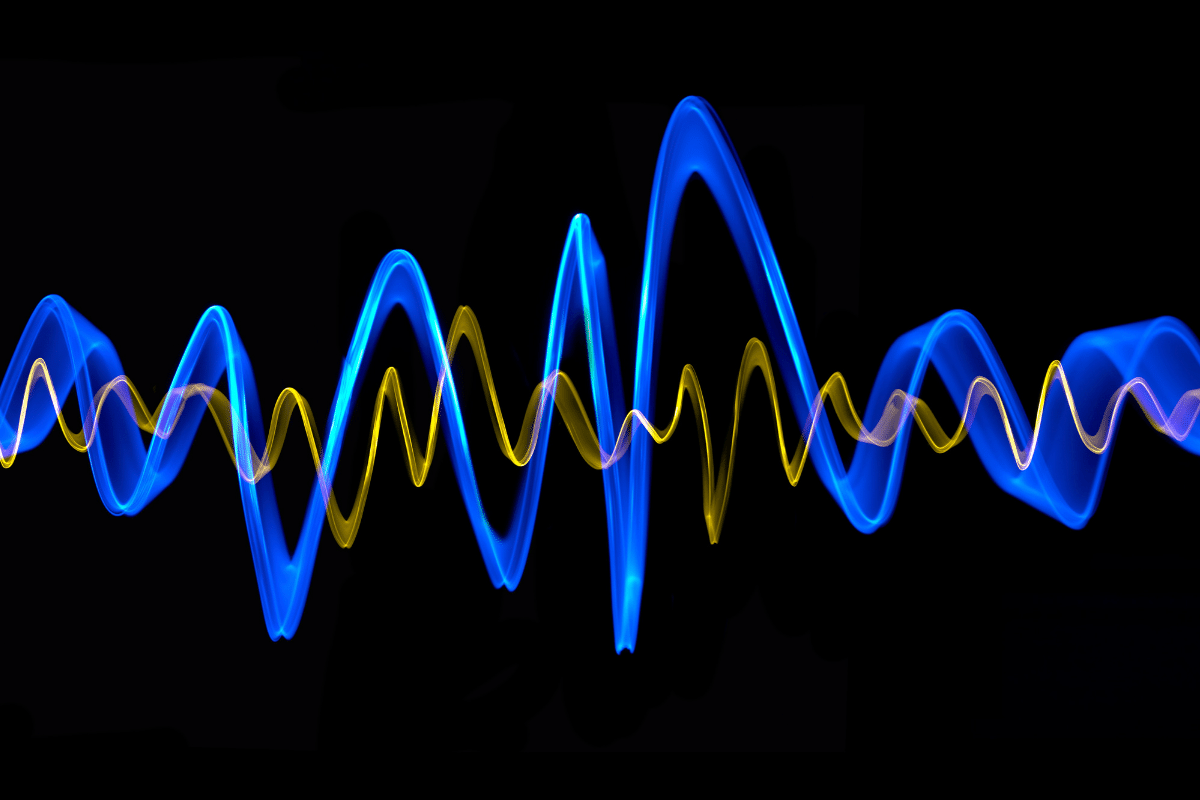What are Low Frequency Sounds?9 min read
Reading Time: 7 minutesLow frequency sounds are sounds that have a lower pitch than average human hearing. This can include sounds from animals like whales, or thunder, or even some musical instruments.
Low frequency sounds are often said to be more calming or soothing than high frequency sounds. This is likely due to the fact that they are less jarring and overwhelming than sounds with a higher pitch.
Low frequency sounds can be used in a variety of ways, both commercially and therapeutically. Some people use them to relax, while others use them to focus or to study. They can also be used to create a certain atmosphere or mood.
There are a number of different ways to create low frequency sounds. One popular way is to use a subwoofer, which is a type of speaker that is specifically designed to create low frequency sounds. You can also use sound machines, which are devices that create a variety of sounds, including low frequency sounds.
Low frequency sounds can be a great way to relax and de-stress. They can also be a great way to focus or study. If you are looking for a way to relax or to focus, low frequency sounds may be the solution for you.
Table of Contents
What are low-frequency noises?
Low-frequency noises are noises that occur at a lower frequency than what the human ear can typically hear. Some low-frequency noises include thunder, traffic, and machinery. These noises can be bothersome and even damaging to the ear, and it is important to understand how to protect yourself from them.
Low-frequency noises can be a major problem for many people. They can be disruptive and annoying, and they can also be dangerous to the ear. This is because low-frequency noises can cause damage to the ear over time. This damage can lead to hearing loss, and it can also lead to other health problems.
It is important to protect yourself from low-frequency noises. You can do this by wearing ear protection when you are exposed to these noises. Ear protection can help to protect your ears from the damage that these noises can cause. You can also try to avoid exposure to these noises as much as possible.
If you are exposed to low-frequency noises, it is important to know the signs of hearing loss. This includes ringing in the ears, difficulty hearing, and a change in the sound of your voice. If you experience any of these symptoms, it is important to see a doctor.
Low-frequency noises can be a major problem for many people. It is important to understand the dangers of these noises and how to protect yourself from them.
Can humans hear low-frequency sounds?
Can human ears hear low-frequency sounds? This is a question that has been asked for years, with scientists still unsure of an answer. The majority of research seems to suggest that humans can hear sounds as low as 20 hertz, but there is still some debate about this.
Low-frequency sounds are those that have a long wavelength. This means that the sound waves move very slowly, and are not able to travel very far. Because of this, low-frequency sounds are generally not very audible. However, they can still be heard in certain circumstances.
One of the main factors that affects how well someone can hear a low-frequency sound is the environment in which they are listening. For example, if there is a lot of noise in the background, it will be harder to hear any low-frequency sounds. This is because the background noise will drown out the sound waves.
It is also important to note that not everyone can hear low-frequency sounds. This is because it depends on a person’s hearing range, which can vary from person to person. Some people are able to hear sounds as low as 20 hertz, while others can only hear sounds up to around 18,000 hertz.
So, can humans hear low-frequency sounds? The answer is yes, but it depends on a person’s hearing range and the environment in which they are listening.

How do you find low frequency sound?
When you’re looking for low frequency sound, it’s important to use the right tools and know where to look. Here are a few tips on how to find low frequency sound:
1. Use a frequency analyzer to find the lowest frequency in a sound. This tool will help you determine the pitch of a sound and locate any low frequency sounds.
2. Use a noise meter to measure the noise level in a room or area. This will help you determine where the low frequency sounds are coming from and how loud they are.
3. Use headphones to listen for low frequency sounds. This is a great way to pinpoint the location of a low frequency sound and determine its intensity.
4. Use a sound meter to measure the volume of a sound. This will help you determine the intensity of a low frequency sound and whether or not it’s causing any noise disturbance.
5. Use a vibration meter to measure the vibration level of a sound. This will help you determine the intensity of a low frequency sound and whether or not it’s causing any vibration disturbance.
6. Use a decibel meter to measure the noise level of a sound. This will help you determine the intensity of a low frequency sound and whether or not it’s causing any noise disturbance.
How do you block low frequency sounds?
There are a few ways that you can block out low frequency sounds. One way is to use noise-cancelling headphones. These headphones emit a sound wave that is the inverse of the sound wave that is being emitted by the noise that you are trying to block out. This cancels out the noise.
Another way to block out low frequency sounds is to use earplugs. Earplugs work by blocking the sound waves from entering your ear canal. This can be helpful if you are trying to sleep or if you are trying to concentrate in a noisy environment.
Finally, you can try to mask the low frequency sounds by playing louder sounds in the same frequency range. This can be helpful if you are trying to work in a noisy environment.
Are low frequencies harmful?
There’s been a lot of debate over the years about whether low frequencies are harmful to our health or not. Some people claim that low frequencies can cause health problems such as headaches, fatigue, and even cancer, while others say that there’s no real evidence to support these claims. So what’s the truth?
There’s no definitive answer to this question, as the effects of low frequencies on our health can vary from person to person. However, there is some research that suggests that low frequencies may be harmful, particularly if you’re exposed to them for long periods of time.
Studies have shown that low frequencies can cause a number of health problems, including headaches, fatigue, and even cancer.
One of the main concerns with low frequencies is that they can cause noise-induced hearing loss. This is because low frequencies can travel further than higher frequencies, and can therefore be more damaging to our ears.
Exposure to low frequencies can also cause other health problems, such as stress and fatigue. This is because low frequencies can cause our bodies to vibrate, which can lead to physical and emotional stress.
While the evidence on low frequencies and health is still inconclusive, it’s probably a good idea to avoid exposure to them if you can. If you are regularly exposed to low frequencies, make sure to take regular breaks and to wear ear protection if necessary.
Why are low-frequency sounds harmful?
Low-frequency sounds are harmful to human health because they can cause physical and psychological damage. Low-frequency sounds are those that are below 1000 hertz, and they can be difficult to hear, especially if the source is far away. Low-frequency sounds can travel long distances and can be heard by people who are not expecting them.
Low-frequency sounds can cause physical damage to the human ear because they are so loud. They can cause hearing loss, tinnitus, and other physical problems. Low-frequency sounds can also cause psychological damage because they can be so disturbing. People who are exposed to low-frequency sounds for long periods of time can experience anxiety, stress, and other psychological problems.
There are several ways to protect yourself from the harmful effects of low-frequency sounds. One is to wear earplugs or earmuffs when you are in an area where there is a lot of noise. Another is to stay away from noise sources whenever possible. If you can’t stay away from the noise, try to minimize your exposure to it. You can also try to relax and stay calm when you are exposed to low-frequency sounds. This will help protect you from the psychological effects of the noise.
How do I stop low-frequency noise in my house?
If you’re hearing a low-frequency noise in your house, it’s likely something is causing vibration in your walls, floors, or ceilings. This noise can be caused by a number of things, including appliances, HVAC systems, or even people walking or talking. While it’s not always possible to completely stop low-frequency noise from entering your home, there are a few things you can do to minimize the sound.
The first step is to identify the source of the noise. Once you know what’s causing the vibration, you can take steps to address it. If the noise is coming from an appliance, you may be able to adjust the settings or move it to a different location in your home. If the noise is coming from your HVAC system, you may need to have it serviced. If the noise is being caused by people walking or talking, you may need to ask them to be more mindful of how they’re moving around your home.
There are also a few things you can do to reduce the amount of noise that’s entering your home from outside. Installing noise-cancelling windows or doors can help reduce the sound of traffic or other outdoor noise. You can also try adding insulation to your walls, floors, and ceilings to help absorb the sound.
If you’ve tried all of these steps and you’re still hearing a lot of low-frequency noise in your home, you may want to consider hiring a professional to help address the issue. A contractor can evaluate your home and recommend specific changes that can help reduce the noise.




